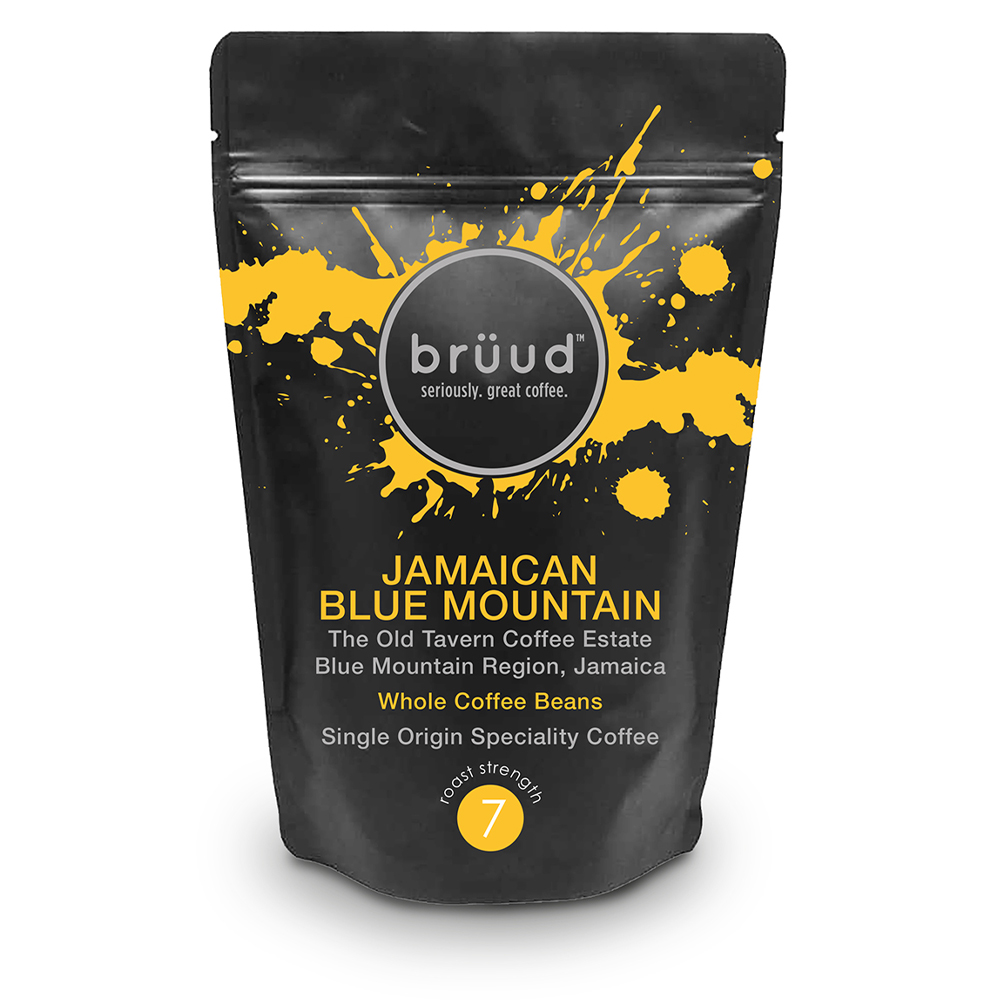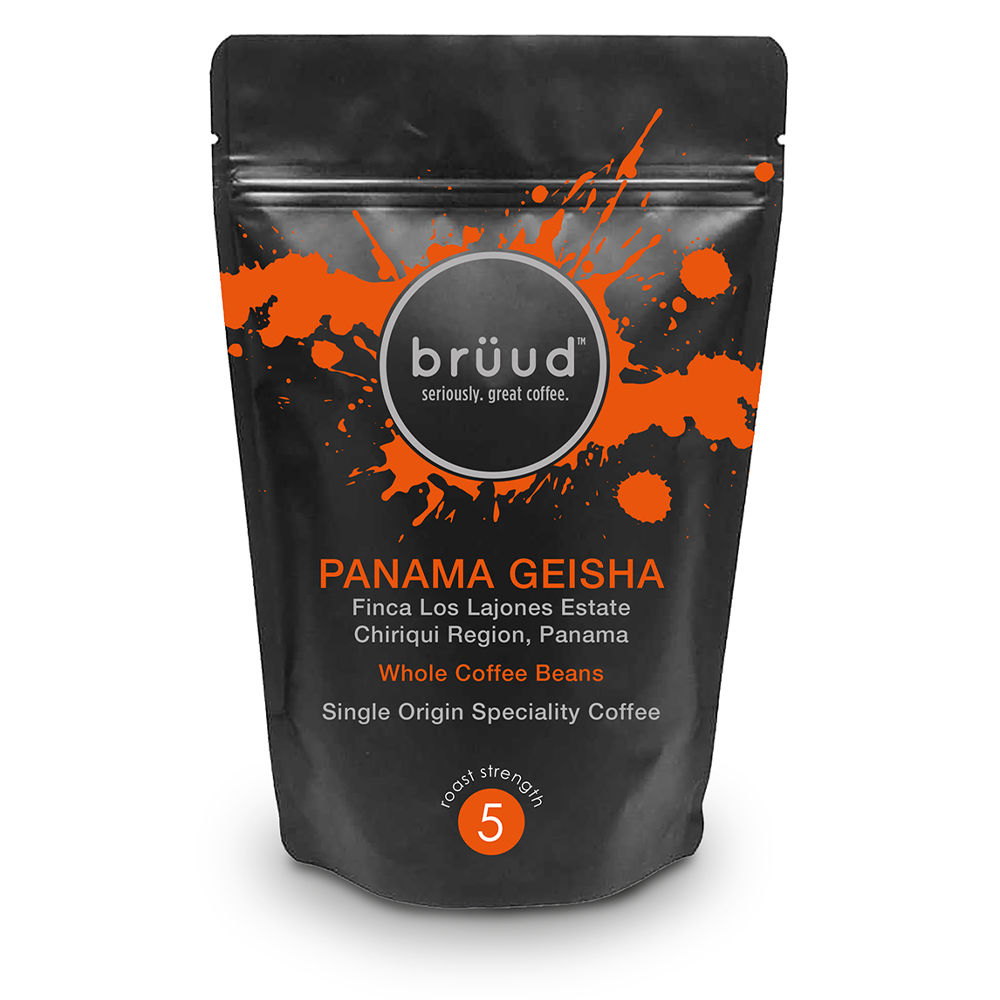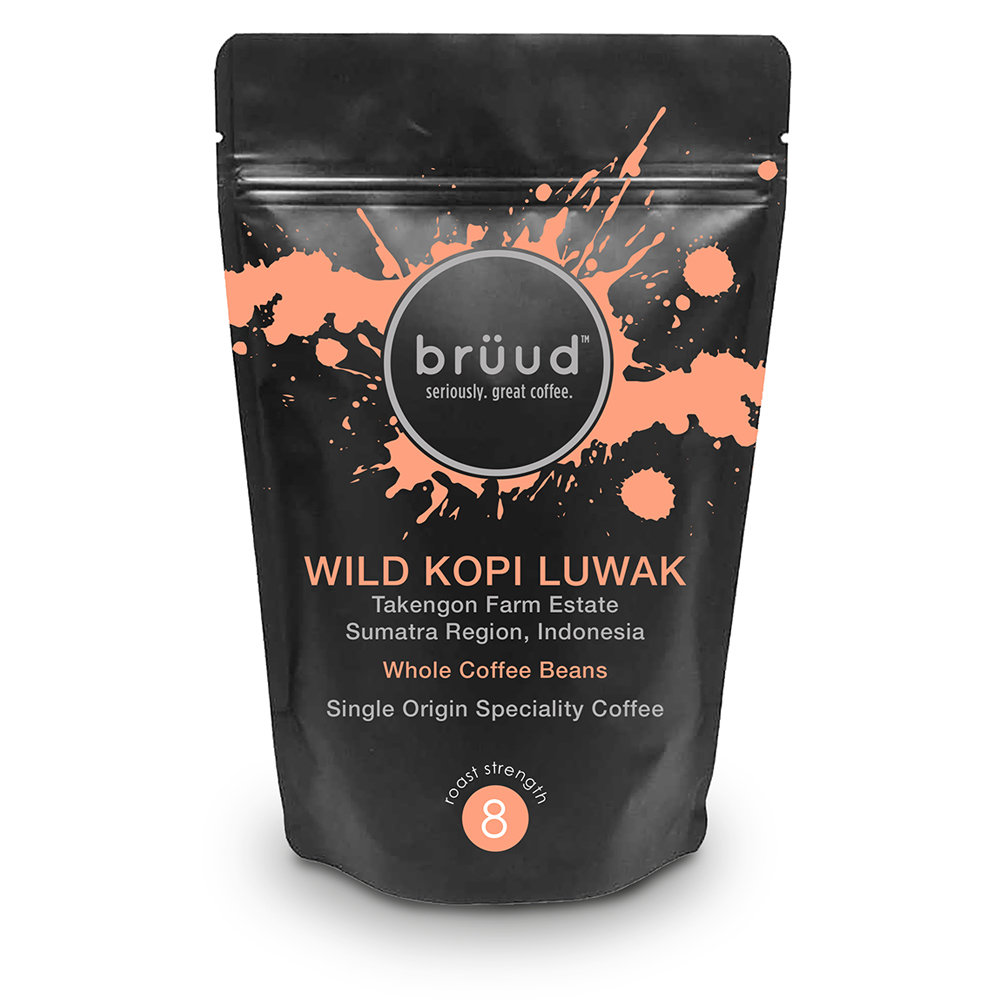Jamaican Blue Mountain Coffee
Blue Mountain Coffee is highly specialised. It is grown in Jamaica, specifically in the Blue Mountains, hence the name. However, there is much more to this highly sought-after speciality coffee than meets the eye.
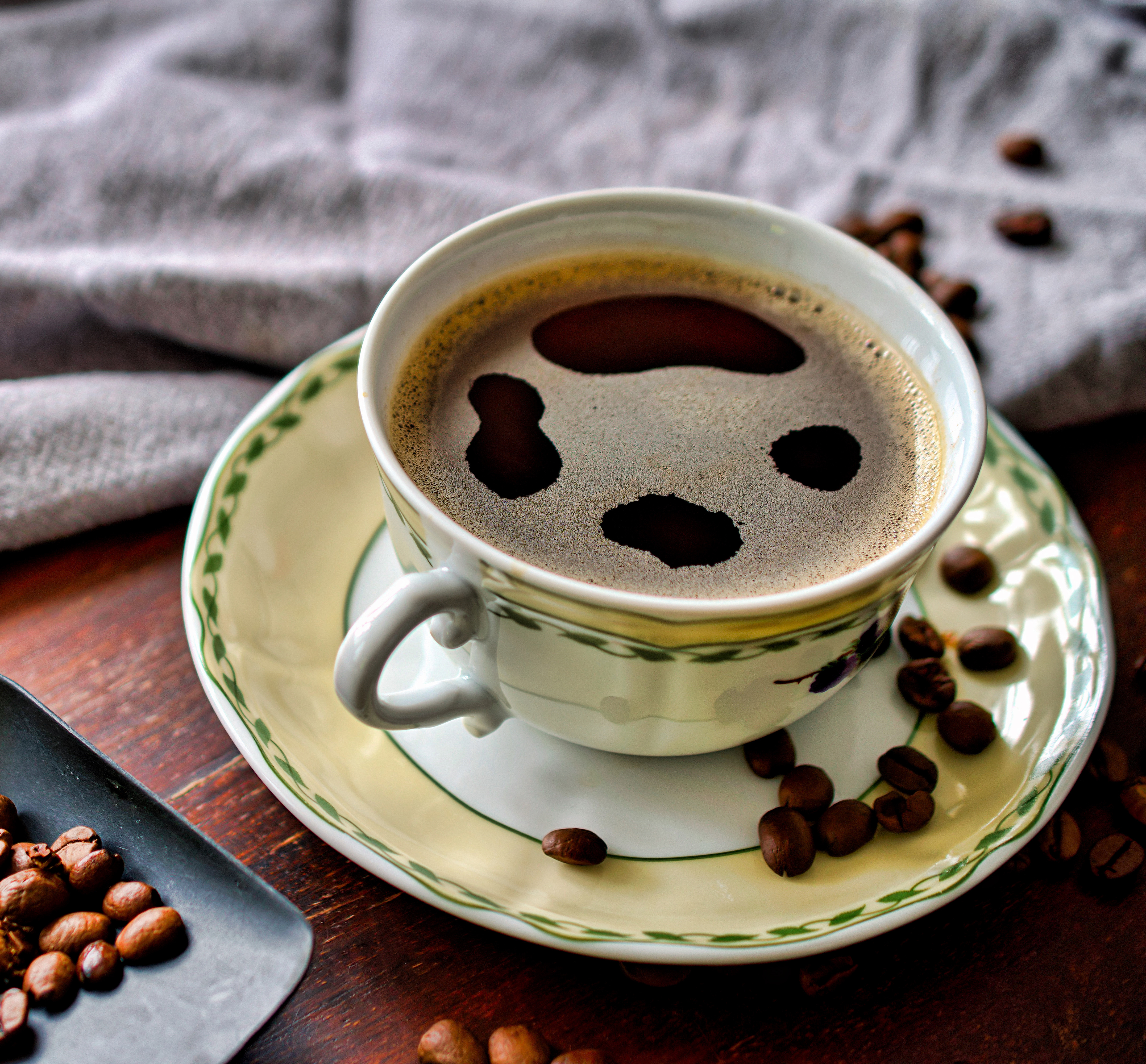
The Coffee
Eastern Jamaica is home to a UNESCO World Heritage Site and the Blue Mountain region which is possibly the most famous coffee origin in the World.
Blue Mountain Coffee beans must be grown above 3,000 feet and below 5,500 feet in elevation.
You're probably aware that altitude is significant in coffee production. It has less to do with being closer to the gods and more with the harsh environment. Plants are less likely to grow at that altitude; therefore, disease is less common.
The Flavour
Because the beans are grown so high, they become harder and denser, limited only by the amount of water available, and their flavours have more time to develop and deepen, making Jamaican Blue Mountain Coffee one of the best coffees in the world.
Now we'd love to tell you that Jamaican Blue Mountain tastes like nectar from the Gods, and whilst this unique coffee does indeed have a very distinctive flavour, it is exceptionally mild and refined with a pleasant sweetness that verges on creamy.
Tones of chocolate occur in the coffee's complexity, which also has a smooth yet sharp acidity with virtually no bitterness.

The History
Jamaica Blue Mountain coffee can be traced back to a decision that a French King made in the 18th century. In 1723, King Louis XV transported three coffee plants to Martinique, a green, fertile island 1,900 km southwest of Jamaica.
Some 5 years later, in 1728, Sir Nicholas Lawes, the Governor of Jamaica, was given the gift of one coffee plant from the Martinique Governor, and well, the rest is history.
A delightful coffee was presented to the World from just one small Arabica coffee plant. This little coffee plant was loved, nurtured, and grew into a whole plantation. The first coffee was exported within nine years, and thus the Jamaican coffee bean industry was born.
Arabica coffee thrives on Jamaica's nitrogen and phosphorus-rich soil, particularly in the Blue Mountains' steep elevations. The Blue Mountains, located north of Kingston on the island's eastern coast, reach altitudes of 2,350 metres. The majority of the beans grown are Arabica Typica.
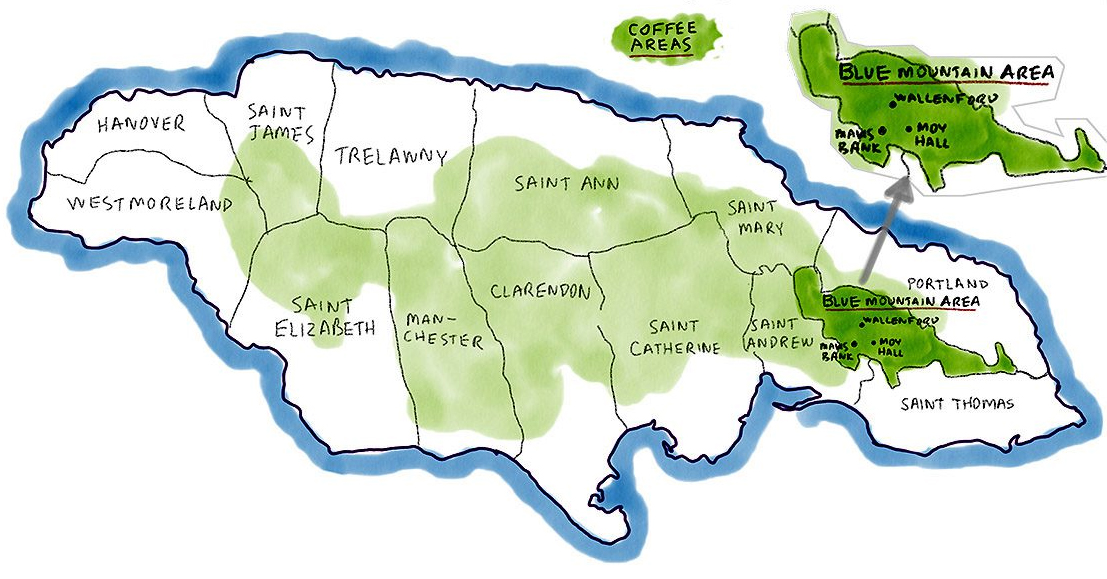
The Region
The beans must be harvested in four different regions of Jamaica: Portland, St. Andrew, St. Thomas, and St. Mary.
Indeed, the regions are relatively small, and the exportable annual production, which ranges between 400 and 1,000 metric tonnes, is insignificant by global standards, equivalent to 0.1% of Colombian output or, putting it another way, comparable to 3 hours from Colombian production!
The conditions that come with higher altitudes and harsh conditions, specifically in the Blue Mountains, make Blue Mountain coffee so coveted.
This volcanic soil, cool, misty, and touching the clouds, promotes a unique drinking experience. It takes twice as long for these coffee plants to ripen for picking at just 10 months.
Jamaica - Producing the Best Coffee in the World.
The Jamaicans know how to make the most of what they have—they appreciate this coffee is a true jewel, and they go above and beyond to make this magnificent rock shine bright like a diamond.
A thorough examination follows the labour-intensive selection process. Only picture-perfect beans are entitled to be labelled as Blue Mountain Coffee.
Using machines to distinguish good and bad beans is not how a premium product should be treated, and as such, these beans are sorted by hand and inspected for any unattractive features, like being too big or too small.
The beans are then separated by flaws, like those caused by the coffee borer beetle. Finally, only beans that are perfectly whole and immaculate are approved.
Jamaican Blue Mountain Coffee has a Bright and Exquisite Future.
With the annual production of Jamaica Blue Mountain coffee staying low and 65% to 80% of it exported to Japan, Jamaica Blue Mountain is as mysterious, opulent, revered, and exquisite as it has always been.



